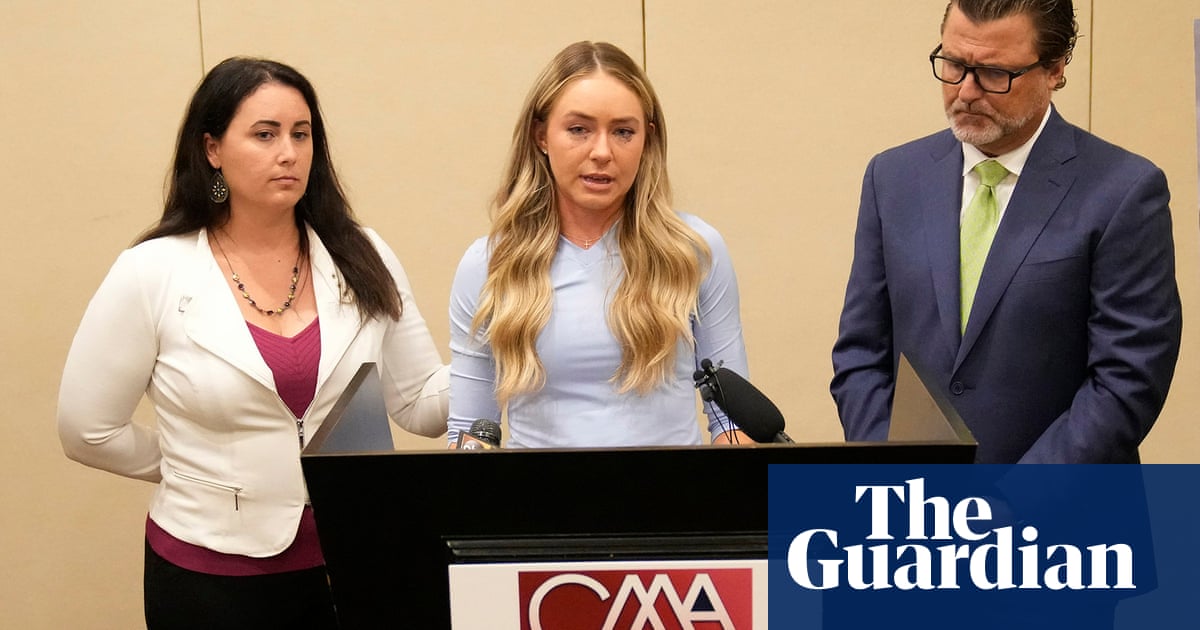A tennis player has been awarded $9m in damages after she accused the US Tennis Association of failing to protect her from a coach she said sexually abused her at one of its training centers.
The lawsuit, filed by Kylie McKenzie in March 2022 in Florida, said Anibal Aranda, who was employed by the sport’s national governing body for about seven years and later fired, used his position as a USTA coach to gain access to vulnerable female athletes and commit sexual battery against them. McKenzie was 19 and Aranda was 34 when she alleges he abused her.
“I couldn’t be happier with the outcome. I feel validated,” McKenzie said in a statement on Tuesday. “It was very hard, but I feel now that it was all worth it. I hope I can be an example for other girls to speak out even when it’s difficult.”
The AP generally doesn’t name people who say they are victims of sexual assault, but McKenzie agreed to let her identity be used in news coverage about her lawsuit.
Her lawsuit said the USTA negligently failed to protect her from sexual assaults and was negligent in keeping Aranda as a coach after he sexually assaulted a USTA employee.
As a junior player, McKenzie – who is now 25 – reached a career-high ranking of No 33 in 2016. The year before, she compiled a 20-6 record in junior competition, including victories over Sofia Kenin, who would go on to win the championship at the 2020 Australian Open, and Tamara Zidansek, later a semi-finalist at the 2021 French Open. In 2022, McKenzie said that the alleged sexual abuse had negatively affected her confidence and self-esteem and that the anxiety she felt from the abuse consumed her on the tennis court in 2019 and 2020. “It has been damaging to me as a person and as a player,” McKenzie said.
The jury in Florida awarded McKenzie $3m in compensation and added $6m in punitive damages on Monday.
“We are very pleased with the jury’s decision to award Ms McKenzie for her pain and suffering but more importantly we believe the jury’s decision to award punitive damages sends the correct message to all sports organizations that they must take necessary steps to protect the athletes under their banner,” her lawyer, Amy Judkins, wrote.
USTA spokesperson Chris Widmaier said the organization would appeal.
“We are sympathetic to the plaintiff and what she endured. We do not – and have never – disputed her allegations against a coach,” Widmaier said.
But Widmaier said the USTA was “deeply troubled” by the decision, including the fact that “the court ruled that the USTA was liable because one of its employees – a non-athlete – had an obligation to report her own experience with this coach to the USTA; an incident that was unknown until after the USTA removed the coach. This sets a new and unreasonable expectation for victims, one that will deter them from coming forward in the future.”
Widmaier said on Tuesday that a review of the USTA’s safeguarding policies and procedures is ongoing. Two lawyers at a Washington-based firm were enlisted to look into how the USTA keeps athletes safe from abuse and how it responds to reports of misconduct.







